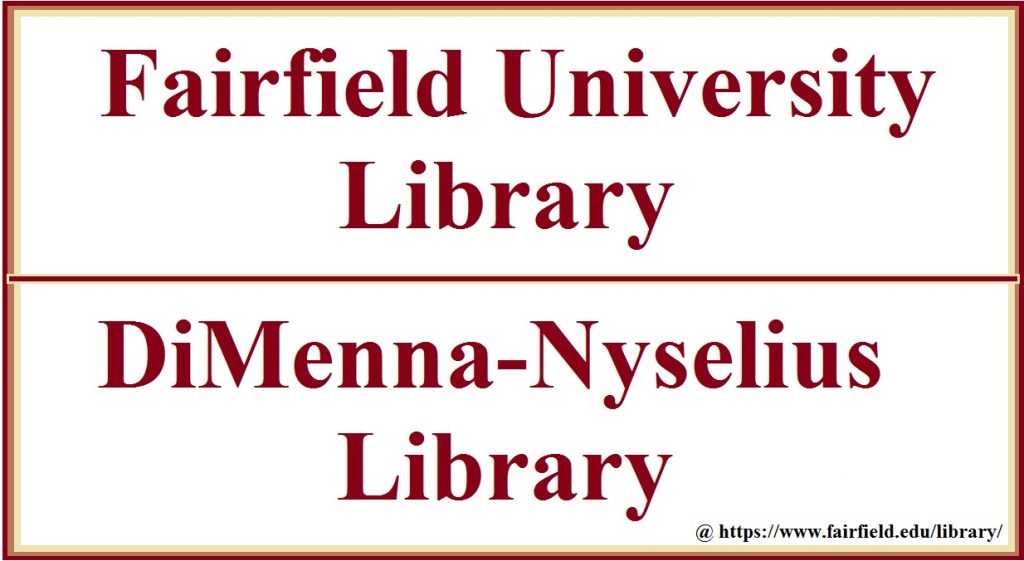The Fairfield University Library, DiMenna-Nyselius Library Book Gallery at https://www.fairfield.edu/library/
Fairfield University Library
The University ranks among the ancient education institutions in the world. Fairfield was launched in 1942 by the society of Jesus as a private Jesuit in Fairfield Connecticut. The University belongs to the 28-member circle institution of association of Jesuit colleges and Universities. The University registers undergraduate and graduate students both full time and part time (4100+1100).
Fairfield University offers bachelor’s degrees, master’s degree and doctoral degrees through their five colleges. The University has produced qualified students into the career world providing both skill and spiritual growth to all current and alumni students. The institution has a well-structure library where students can access learning materials and resources.

The DiMenna-Nyselius library
These the biggest library with a capacity of more than 5000 books and learning materials. The library is located in The Fairfield University, serving all the Fairfield University students. the University works both offline and online where students can access information through the link http://www.fairfield.edu/library/index.html.
The library was established in 1948 under the sole leadership of Robert Gaffney a librarian. Over the years the Library has expanded to host thousands of students and a capacity of 90,000-30,000 books. The library has a smoke area, two typing rooms and full-time reference librarian. Students can access all study materials using their library cards and online systems.
Library access
The DiMenna-Nyselius library is available to current University students, faculty and the staff. The online and off campus students can use the library material easily by accessing the library using the library card of the portal website. Student will require validation of details through the NetID, for community members outside the University they only access the material when they physically visit the library. Fairfield students can access the following:
- Online resources.
- E-books and e-journals
- Databases
Borrowing privileges for Fairfield students and community borrower/member.
Faculty, staff, students and retired personnel
The Fairfield students are eligible to borrow library materials after they present the valid University identification card. The same applies to the faculty, staff and retired personnel’s they have to show their identification to access all materials.
Adjunct faculty
The adjunct members can only borrow materials during the semester they are teaching. These kind of faculty only work in the University on semester by semester basis. During their active semester the University allows them to borrow materials which they return at the end of the semester. However, they can receive full privilege after applying to circulation supervisor. These happens after two years or eight semesters of service in the University.
Prep students and guest cards.
The prep students don’t have full access of the library material; unless they produce the Prep id. The library also provided access to Fairfield University alumni, adult Fairfield residents who are aged 18 years and above. They must have a Fairfield public library card to use the learning materials. The community members can only access the library by paying a fee of $100 annually. They can register at the library services or the helpdesk. For this category they are eligible to borrow four items only each time, however, they can renew the borrow privilege to access other items.
Note Fairfield student can apply for borrowing privilege using the Fairfield public library. Students working outside the state have to provide their student id or DL and other proof documents to access the items. for the community and Fairfield residents the library cards are free at the library and once they expire they can be renewed at the library circulation desk. Using the card residents can receive the following privileges:
- Books
- Have movies and magazines
- They can access the University library databases.
- Download learning materials such as books.
- Download music from the library’s website.
- Access to internet.